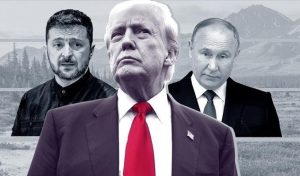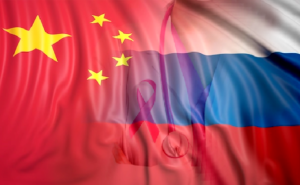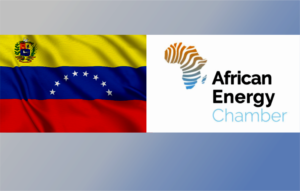Trump and Putin’s Meeting in Budapest, Proposed for next Thursday, Sparks Global Debate over War, Peace and Power
In a surprise announcement the US President Donald Trump said Thursday he will meet Russian President Vladimir Putin in Budapest, Hungary, to discuss ending the war in Ukraine. The exact date has not been set, but Trump confirmed on social media that the meeting will take place soon, following what he described as a productive phone call with Putin.
Hungarian Prime Minister Viktor Orbán, a close ally of both leaders, welcomed the news, calling it – “great news for the peace-loving people of the world”. On the streets of Budapest, opinions were divided. “It’s a positive development. Hungary can play a key role in talks about the outcome of the war” – György Szirmai said, a resident in Hungary.

Yet others were less optimistic. “Orbán plays Putin’s tune,” said Viktor Erbin, another local. “The US and the EU must keep supporting Ukraine militarily otherwise, it would already be lost.”
The planned Budapest summit, coming a day before Trump’s scheduled meeting with Ukrainian President Volodymyr Zelenskyy at the White House, highlights the deep political and cultural rifts shaping Europe’s future. Zelenskyy has urged Washington to approve longer-range weapons to strike deeper into Russian territory, arguing such leverage is essential to push Putin toward serious negotiations.
Beyond the battlefield, the human toll of the war continues to mount. Families across Ukraine face daily uncertainty, with millions displaced and communities fractured. The potential for peace brings both hope and anxiety. Hope that the bloodshed might finally end, but fear that political deals could overlook justice for victims and long-term security for Ukraine’s people.
In Hungary, where Orbán’s government has refused to send weapons or allow their transit to Ukraine, the meeting indicates the country’s unique position as geographically European, but diplomatically leaning towards the East. Critics say Orbán’s pro-Russia stance has isolated Hungary within the European Union, while supporters see it as pragmatic realism amid war fatigue and economic strain.

The war’s ripple effects extend far beyond politics. Businesses across Eastern Europe struggle with disrupted trade and soaring energy prices. Cultural exchanges have frozen, and families with ties to both Russia and Ukraine find themselves torn between loyalties. Ordinary citizens question the prospect of Trump and Putin meeting again. Can diplomacy, even among controversial partners end a conflict that has already reshaped global power and human lives?
As the world waits for a date in Budapest, one thing is clear, the outcome could redefine not only the course of the Ukraine war but also the balance between peace, power and principle in the 21st century.







